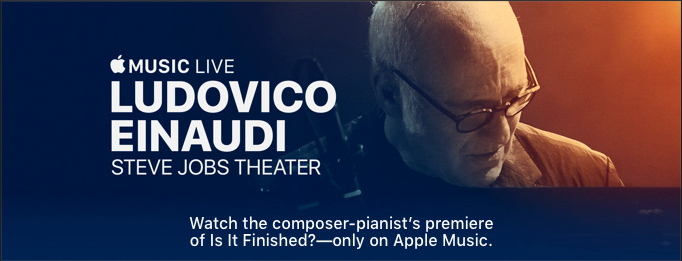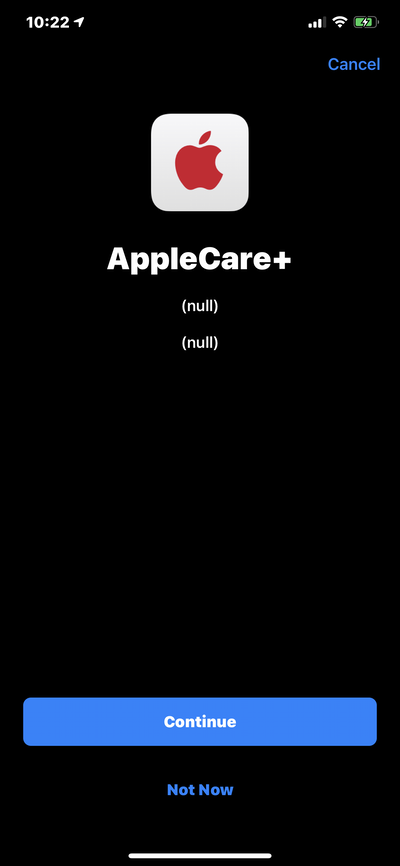I have written a tool you can actually use rather than copying and pasting
shell-script snippets, which you can read about in a new post
here. I've done my best to update the
accuracy of the information below as well, particularly with respect to which
Python you want and why, but it is a much older post and I could easily have
missed something.
I’ve written and
spoken
at some length about shipping software in the abstract. Sometimes I’ve even
had the occasional concrete tidbit, but that
advice wasn’t really complete.
In honor of Eevee’s delightful Games Made
Quick???, I’d like to help you
package your games even quicker than you made them.
Who is this for?
About ten years ago I made a prototype of a little PyGame thing which I wanted
to share with a few friends. Building said prototype was quick and fun, and
very different from the usual sort of work I do. But then, the project got
just big enough that I started to wonder if it would be possible to share the
result, and thus began the long winter of my discontent with packaging tools.
I might be the only one, but... I don’t think so. The history of
PyWeek, for example, looks to be a history of games
distributed as Github repositories, or, at best, apps which don’t launch. It
seems like people who participate in game jams with Unity push a button and
publish their games to Steam; people who participate in game jams with Python
wander away once the build toolchain defeats them.
So: perhaps you’re also a Python programmer, and you’ve built something with
PyGame, and you want to put it on your website so your friends can download it.
Perhaps many or most of your friends and family are Mac users. Perhaps you
tried to make a thing with py2app once, and got nothing but inscrutable
tracebacks or corrupt app bundles for your trouble.
If so, read on and enjoy.
What changed?
If things didn’t work for me when I first tried to do this, what’s different
now?
- the packaging ecosystem in general is far less buggy, and py2app’s
dependencies, like setuptools, have become far more reliable as well. Many
thanks to Donald Stufft and the whole PyPA for that.
- Binary wheels exist, and the community has been
getting better and better at building self-contained wheels which include
any necessary C libraries, relieving the burden on application authors to
figure out gnarly C toolchain issues.
- The PyGame project now ships just such wheels for a variety of Python
versions on Mac, Windows, and
Linux, which removes a whole huge pile of complexity both in generally
understanding the C toolchain and specifically understanding the SDL build
process.
- py2app has been actively maintained and many bugs have been fixed - many
thanks to Ronald Oussoren et. al. for that.
- I finally broke down and gave Apple a hundred
dollars so I can produce an app
that normal humans might actually be able to
run.
There are still weird little corner cases you have to work around — hence this
post – but mostly this is the story of how years of effort by the Python
packaging community have resulted in tools that are pretty close to working out
of the box now.
Step 0: Development Setup
You will also want to use a virtual
environment
for development.
Finally: pip install all your requirements into your virtualenv, including
PyGame itself.
Step 1: Make an icon
All good apps need an icon, right?
When I was young, one would open up ResEdit
Resorcerer MPW CodeWarrior
Project Builder Icon Composer Xcode and
create a new ICON resource cicn resource
.tiff file.icns file. Nowadays there’s some weird opaque
stuff with xcassets files and Contents.json and “Copy Bundle Resources” in
the default Swift and Objective C project templates and honestly I can’t be
bothered to keep track of what’s going on with this nonsense any more.
Luckily the OS ships with the macOS-specific “scriptable image processing
system”, which can helpfully convert an icon for you. Make yourself a 512x512
PNG file in your favorite image editor (with an
alpha channel!) that you want to use as your icon, then run it something like
this:
| $ sips -s format icns Icon.png --out Icon.icns
|
somewhere in your build process, to produce an icon in the appropriate format.
There’s also one additional wrinkle with PyGame: once you’ve launched the
game, PyGame helpfully assigns the cute, but ugly, default PyGame icon to
your running process. To avoid this, you’ll need these two lines somewhere in
your initialization code, somewhere before pygame.display.init (or, for that
matter, pygame.display.<anything>):
| from pygame.sdlmain_osx import InstallNSApplication
InstallNSApplication()
|
Obviously this is pretty Mac-specific so you probably want this under some kind
of platform-detection conditional, perhaps this
one.
Unfortunately py2app still tries really hard to jam all your code into a .zip
file, which breaks the world in various hilarious ways. Your app will probably
have some resources you want to load, as will PyGame itself.
Supposedly, packages=["your_package"] in your setup.py should address this,
and it comes with a “pygame” recipe, but neither of these things worked for me.
Instead, I convinced py2app to splat out all the files by using the
not-quite-public “recipe” plugin API:
1
2
3
4
5
6
7
8
9
10
11
12
13
14
15
16
17
18
19
20
21
22
23
24
25
26
27
28
29
30
31
32
33
34
35
36
37
38
39
40
41 | import py2app.recipes
import py2app.build_app
from setuptools import find_packages, setup
pkgs = find_packages(".")
class recipe_plugin(object):
@staticmethod
def check(py2app_cmd, modulegraph):
local_packages = pkgs[:]
local_packages += ['pygame']
return {
"packages": local_packages,
}
py2app.recipes.my_recipe = recipe_plugin
APP = ['my_main_file.py']
DATA_FILES = []
OPTIONS = {}
OPTIONS.update(
iconfile="Icon.icns",
plist=dict(CFBundleIdentifier='com.example.yourdomain.notmine')
)
setup(
name="Your Game",
app=APP,
data_files=DATA_FILES,
include_package_data=True,
options={'py2app': OPTIONS},
setup_requires=['py2app'],
packages=pkgs,
package_data={
"": ["*.gal" , "*.gif" , "*.html" , "*.jar" , "*.js" , "*.mid" ,
"*.png" , "*.py" , "*.pyc" , "*.sh" , "*.tmx" , "*.ttf" ,
# "*.xcf"
]
},
)
|
This is definitely somewhat less efficient than py2app’s default of stuffing
the code into a single zip file, but, as a counterpoint to that: it actually
works.
Step 3: Build it
Hopefully, at this point you can do python setup.py py2app and get a shiny
new app bundle in dist/$NAME.app. We haven’t had to go through the hell of
quarantine
yet, so it should launch at this point. If it doesn’t, sorry :-(.
You can often debug more obvious fail-to-launch issues by running the
executable in the command line, by running
./dist/$NAME.app/Contents/MacOS/$NAME. Although this will run in a slightly
different environment than double clicking (it will have all your shell’s env
vars, for example, so if your app needs an env var to work it might
mysteriously work there) it will also print out any tracebacks to your
terminal, where they’ll be slightly easier to find than in Console.app.
Once your app at least runs locally, it’s time to...
Step 4: Code sign it
All the tutorials that I’ve found on how to do this involve doing Xcode project
goop where it’s not clear what’s happening underneath. But despite the fact
that the introductory docs aren’t quite there, the underlying model for
codesigning stuff is totally common across GUI and command-line cases.
However, actually getting your cert requires Xcode, an apple ID, and a
credit card.
After paying your hundred dollars, go into Xcode, go to Accounts, hit “+”,
“Apple ID”, then log in. Then, in your shiny new account, go to “Manage
Certificates”, hit the little “+”, and (assuming, like me, you want to put
something up on your own website, and not submit to the Mac App Store), and
choose Developer ID Application. You probably think you want “mac app
distribution” because you are wanting to distribute a mac app! But you don’t.
Next, before you do anything else, make sure you have backups of your certificate and private key.
You really don’t want to lose the private key associated with that cert.
Now quit Xcode; you’re done with the GUI.
You will need to know the identifier of your signing key though, which should
be output from the command:
| $ security find-identity -v -p codesigning | grep 'Developer ID' | sed -e 's/.*"\(.*\)"/\1/'
|
You probably want to put that in your build script, since you want to sign with
the same identity every time. Further commands here will assume you’ve copied
one of the lines of results from that command and done export IDENTITY="..."
with it.
Step 4a: Become Aware Of New Annoying Requirements
Update for macOS Catalina: In Catalina, Apple has added a new
code-signing requirement; even
for apps distributed outside of the app store, they still have to be submitted
to and approved by Apple.
In order to be notarized, you will need to codesign not only your app itself,
but to also:
- add the hardened-runtime exception entitlements that allow Python to work, and
- directly sign every shared library that is part of your app bundle.
So the actual code-signing step is now a little more complicated.
Step 4b: Write An Entitlements Plist That Allows Python To Work
One of the features that notarization is intended to strongly encourage is
the “hardened runtime”, a feature of macOS which opts in to stricter run-time
behavior designed to stop malware. One thing that the hardened runtime does is
to disable writable, executable memory, which is used by JITs, FFIs ... and
malware.
Unfortunately, both Python’s built-in ctypes module and various popular bits
of 3rd-party stuff that uses cffi, including pyOpenSSL, require writable,
executable memory to work. Furthermore, py2app actually imports ctypes
during its bootstrapping phase, so you can’t even get your own code to start
running to perform any workarounds unless this is enabled. So this is just
if you want to use Python, not if your project requires ctypes directly.
To make this long, sad story significantly shorter and happier, you can
create an entitlements property list that enables the magical property which
allows this to work. It looks like this:
| <?xml version="1.0" encoding="UTF-8"?>
<!DOCTYPE plist PUBLIC "-//Apple//DTD PLIST 1.0//EN" "http://www.apple.com/DTDs/PropertyList-1.0.dtd">
<plist version="1.0">
<dict>
<key>com.apple.security.cs.allow-unsigned-executable-memory</key>
<true/>
</dict>
</plist>
|
Subsequent steps assume that you’ve put this into a file called entitleme.plist in your project root.
Step 4c: SIGN ALL THE THINGS
Notarization also requires that all the executable files in your bundle, not
just the main executable, are properly code-signed before submitting. So
you’ll need to first run the codesign command across all your shared
libraries, something like this:
| $ cd dist
$ find "${NAME}.app" -iname '*.so' -or -iname '*.dylib' |
while read libfile; do
codesign --sign "${IDENTITY}" \
--entitlements ../entitleme.plist \
--deep "${libfile}" \
--force \
--options runtime;
done;
|
Then finally, sign the bundle itself.
| $ codesign --sign "${IDENTITY}" \
--entitlements ../entitleme.plist \
--deep "${NAME}.app" \
--force \
--options runtime;
|
Now, your app is code-signed.
Step 5: Archive it
The right way to do this is probably to use
dmgbuild or something like it,
but what I promised here was quick and dirty, not beautiful and best practices.
You have to make a Zip archive that preserves symbolic links. There are a
couple of options for this:
open dist/, then in the Finder window that comes up, right click on the app and “compress” itcd dist; zip -yr $NAME.app.zip $NAME.app
Most importantly, if you use the zip command line tool, you must use the
-y option. Without it, your downloadable app bundle will be somewhat
mysteriously broken even though the one before you zipped it will be fine.
Step 6: Actually The Rest Of Step 4: Request Notarization
Notarization is a 2-step process, which is somewhat resistant to fully
automating. You submit to Apple, then they email you the results of doing
the notarization, then if that email indicates that your notarization succeded,
you can “staple” the successful result to your bundle.
The thing you notarize is an archive, which is why you need to do step 5 first.
Then, you need to do this:
| $ xcrun altool --notarize-app \
--file "${NAME}.app.zip" \
--type osx \
--username "${YOUR_DEVELOPER_ID_EMAIL}" \
--primary-bundle-id="${YOUR_BUNDLE_ID}";
|
Be sure that YOUR_BUNDLE_ID matches the CFBundleIdentifier you told py2app
about before, so that the tool can find your app bundle inside the archive.
You’ll also need to type in the iCloud password for your Developer ID account
here.
Step 6a: Wait A Minute
Anxiously check your email for an hour or so. Hope you don’t get any errors.
Step 6b: Finish Notarizing It, Finally!
Once Apple has a record of the app’s notarization, their tooling will recognize
it, so you don’t need any information from the confirmation email or the
previous command; just make sure that you are running this on the exact same
.app directory you just built and archived and not a version that differs in
any way.
| $ xcrun stapler staple "./${NAME}.app";
|
Finally, you will want to archive it again:
| $ zip -qyr "${NAME}.notarized.app.zip" "${NAME}.app";
|
Step 7: Download it
Ideally, at this point, everything should be working. But to make sure that
code-signing and archiving and notarizing and re-archiving went correctly, you
should have either a pristine virtual machine with no dev tools and no Python
installed, or a non-programmer friend’s machine that can serve the same
purpose. They probably need a relatively recent macOS - my own experience has
shown that apps made using the above technique will definitely work on High
Sierra (and later) and will definitely break on Yosemite (and earlier); they
probably start working at some OS version between those.
There’s no tooling that I know of that can clearly tell you whether your mac
app depends on some detail of your local machine. Even for your
dependencies, there’s no auditwheel for macOS.
Updated 2019-06-27: It turns out there is an
auditwheel like thing for macOS: delocate! In
fact, it predated and inspired auditwheel!
Thanks to Nathaniel Smith for the update
(which he provided in, uh, January of 2018 and I’ve only just now gotten around
to updating...).
Nevertheless, it’s always a good idea to check your final app build on a fresh
computer before you announce it.
Coda
If you were expecting to get to the end and download my cool game, sorry to
disappoint! It really is a half-broken prototype that is in no way ready for
public consumption, and given my current load of
personal and
professional responsibilities, you definitely shouldn’t expect anything from me
in this area any time soon, or, you know, ever.
But, from years of experience, I know that it’s nearly impossible to summon any
motivation to work on small projects like this without the knowledge that the
end result will be usable in some way, so I hope that this helps someone else
set up their Python game-dev pipeline.
I’d really like to turn this into a 3-part series, with a part for Linux
(perhaps using flatpak? is that a good thing?) and a
part for Windows. However, given my aforementioned time constraints, I don’t
think I’m going to have the time or energy to do that research, so if you’ve
got the appropriate knowledge, I’d love to host a guest post on this blog, or
even just a link to yours.
If this post helped you, if you have questions or corrections, or if you’d like
to write the Linux or Windows version of this post, let me
know.








